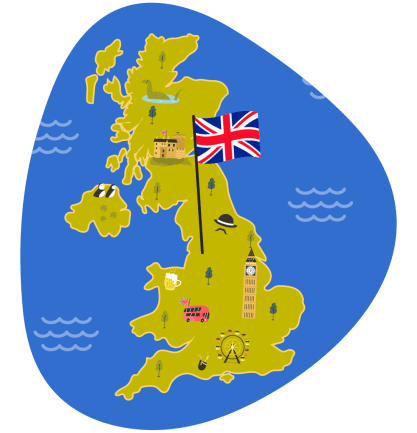The Burrow

The importance of being prepared
It’s important to think about what would happen if you were to pass away, even if it’s not the most pleasant thought.
When it comes to financial preparedness, life insurance (subject to the terms and conditions of the Policy and your individual circumstances) can be useful as it can pay out a sum of money to your family or selected beneficiaries if you were to either pass away or receive a terminal diagnosis. It can make all the difference to a family that is grieving to know that their loved one’s financial commitments are supported.
Despite this, it’s still incredibly important to have a will in place to make sure your personal wishes are accounted for. Someone’s last will and testament is a private legal document that may determine what you receive on the passing of a loved one. So, what you think you’re getting and what you receive could be two different things.
As experts in life insurance, we want to encourage people to be as prepared as they can be while they are still around and in control of things. That’s why, as a light-hearted approach to a very heavy topic, we’ve compiled a list of very unique instances of beneficiaries of a will that we hope might make you feel more comfortable having this conversation with your own family.
In this list, we uncover 14 strange beneficiaries of a will, the stories behind the decisions and the fall out that ensued.

In 2007, Portuguese aristocrat Luis Carlos de Noronha Cabral da Camara died at age 42, with no wife or children to inherit his estate.
13 years before his death, Luis visited a Lisbon registry office and chose at random, 70 people listed in the phone directory to inherit his wealth.1 Seventy lucky Lisboans shared in his liquidated assets:
When interviewed, the beneficiaries spoke about the fortuitous call from the lawyer’s office. Most thought it was a scam or a cruel joke.
So, why the phonebook? In Portugal, if you don’t have next of kin – or create a will – then your belongings go to the state. Perhaps this is the reasoning behind Luis’ seemingly random bequest.
Countess Karlotta Liebenstein of Germany died in 1991. A woman of substantial means, she had no children or close relatives to inherit her wealth. She only had a dog.
In a bizarre twist, a German Shepherd named Gunther III inherited her USD $80 million estate.2 In Germany and throughout many countries, animals can’t legally own property or assets directly. However, they can inherit money through a ‘pet trust’ controlled by a designated trustee. It’s rumoured that fashion icon Karl Lagerfeld, actor Drew Barrymore and TV host Oprah Winfrey have also set up pet trusts.
Today, Gunther’s son or heir, Gunther IV (or his descendant) is the world’s richest dog and currently lives in doggy paradise with a personal maid. Thanks to smart investments from Gunther’s caretakers, his net worth has ballooned out to USD $373 million. Not bad for a dog.
The man who wrote some of the greatest romance stories of all time, including Romeo and Juliet, may not have had the same kind of love in his personal life that he immortalised on paper.
When English author, poet and playwright, William Shakespeare died in 1616, he left behind a sizeable estate worth roughly the equivalent of USD $467,360. However, nearly the entirety went to his two daughters, Susanna and Judith. As for his wife, Anne Hathaway, it was not to be – she was only left his ‘second-best bed’.3 This bed is likely the marriage bed, as the best bed was usually offered to guests – a subtle way to flout your wealth.
A union spanning over 30 years, Shakespeare married Hathaway when he was just 18 and she was 26, a relationship (an older woman with a younger man) which was highly unusual for the time. Nonetheless, Hathaway was barely mentioned in the will.
William Shakespeare is considered the father of the English language and one of the greatest writers of all time, though he left no parting words (in his will) for his family and friends. Shakespeare died one month after his will was written. His official cause of death is unknown.


In 1962, Finnish man Onni Nurmi, the owner of a small company that produced rubber boots, died at age 77. That company was Nokia, and would one day diversify into a multinational telecommunications and consumer electronics giant.
In his last will and testament, Nurmi left his native village, Pukkila (60 miles North of Helsinki), 760 Nokia shares (the equivalent of USD $12,300) with the following instructions:
In 1997-98, the share’s worth skyrocketed to tens of millions of dollars. The local council wanted to sell the shares and spend the windfall, while a small number of residents wanted to respect Nurmi’s instructions. After a three-year court battle, the matter was settled, and the Pukkila town council established a foundation to oversee the sale of shares and dividends.
Quite fittingly, some of the money was spent on building a state-of-the-art nursing home. A portrait of Onni Nurmi hangs in the dining room.
When wealthy industrialist and timber baron Wellington Burt died in 1919, he was the eighth richest person in America – and his will was arguably one of the strangest.
In his last will and testament, Burt stated that he wanted his multimillion-dollar fortune to be given out 21 years after the death of his last grandchild. This would happen a staggering 91 years later.5
In 2010, Burt’s USD $110 million fortune was divided between 12 descendants. Although the bulk of the estate bypassed his immediate family, Burt did leave annual payments of around USD $1,000 to each of his three children. Except for his favourite son, who received USD $30,000 per annum.
Burt’s motives remain unknown. However, a litany of simmering family feuds may have played a part.
T.M Zink was an American lawyer, husband and father who loathed women. In 1930, Zink died and left his daughter USD $5 while his wife received nothing except permission to remain in their home – if she paid rent to his estate.
Zink left the remainder, $50,000 in a trust for 75 years. He calculated the money would grow to $3 million – enough to build the ‘Zink Womanless Library’.6 A library without any books written by women and a sign at the entrance that would say, ‘No woman admitted’.
Unfortunately for Zink, his family successfully contested his will – they had him declared of unsound mind. The ‘Zink Womanless Library’ was never built.
Charles Vance Millar was a Canadian lawyer, financier and practical joker – and in death, he became known for one of the most unusual wills in history. Upon his death in 1926, Millar bequeathed that his estate would be awarded to the Toronto woman who could bear the most children in the decade following his death.
The Great Stork Derby was a contest held in Toronto between 1926 and 1936.7 Eleven families completed in the contest, and eventually, a judge ruled in favour of four mothers who received USD $110,000 each. All four mothers produced nine children in the 10 years.
So, why did Millar leave such an unusual will? According to reports, he was a lover of practical jokes, especially those that played on people’s greed.


Dusty Springfield was an English pop singer, who peaked during the swinging sixties. A member of the Rock and Roll Hall of Fame, Dusty had six top 20 singles on the US Billboard Hot 100, including ‘Son of a preacher man’.
As one of the most successful British female singers of all time, Dusty acquired a fortune throughout her nearly 40-year career. However, when she died of breast cancer in 1999, she left her fortune to her 13-year-old cat Nicholas.8
After Dusty’s death, Nicholas was bequeathed to her friend Lee, whom she instructed to maintain the cat’s opulent lifestyle. This lifestyle included:
In the months leading to her death, she made the ‘appropriate’ arrangements for Nicholas. Dusty Springfield never married or had children and she was a lifelong animal activist and cat lover.
Nina Wang was once Asia’s richest woman. But her rise to wealth wasn’t a smooth one and her legacy is tainted by mystery, legal battles and scandal.
In 1990, Nina’s husband and Hong Kong chemical magnate, Teddy Wang, was kidnapped, mysteriously disappeared and was declared legally dead in 1999. Once declared dead, Nina and Teddy’s father, Wang Din-shin, fought in court over Teddy’s fortune and control of the multibillion-dollar company, Chinachem.
The court sifted through three wills, declaring the most recent a forgery. In 2004, the High Court ruled in Din-shin’s favour. The following year, Nina Wang was charged with will forgery and freed on bail. However, later that year, the Court of Final Appeal overturned the original ruling and Nina Wang regained Teddy’s fortune and Chinachem.9
When Nina Wang died in 2007, her estate also became shrouded in controversy when her lover, Peter Chan, forged her will. Chan attempted to claim Wang’s entire fortune, even though she left him USD $387 million. The greedy Chan was sentenced to 12 years in prison and Nina Wang’s enormous fortune went to charity.
Imagine being flat broke and living in a cave with your brother, only to find out your maternal grandmother left you a multibillion-dollar inheritance. Well, that’s what happened to German brothers, Geza and Zsolt Peladi in 2009.
The siblings were living in a cave near Budapest, Hungary, when charity workers tracked them down after contact from lawyers handling the estate of the deceased. The unnamed woman from Baden-Wurttemberg, Germany, left the equivalent of USD $4.5 billion to the brothers and one sister – who lives in the United States.11 Under German law, direct relatives are entitled to a share of any estate – and as the woman had no surviving next of kin, her grandchildren inherited the money.
Geza, 43, stated on a local television programme that they knew their mother came from a wealthy family, but they lost contact with her after she abandoned them in their early years.10 The Peladi brothers hoped the money would allow them to find partners and live a normal life.


When Canadian investment banker John Keith Owen died in 2007, he had no close relatives except a brother to inherit his USD $4 million estate. The strange beneficiary? The small seaside resort town of Sidmouth, 163 miles south-west of London, England.
Owen was born near Sidmouth in Devon. However, he became a Canadian citizen and set up life in Ottawa, Canada, after 20 years in the Royal Air Force (RAF). But he never forgot the town; in fact, it’s where his mother lived, and frequently holidayed.
In 2007, when he was diagnosed with lung cancer, Owen contacted the Sid Vale conservation group, informing the members that he wanted his legacy to keep the town beautiful.
The Sid Vale Association receives around the equivalent of USD $258,000 per year via the Keith Owen Fund, which is spent on projects and distributed to local organisations.11 Owen described Sidmouth as a place that represents how England used to be. This sense of nostalgia is thought to be the reason behind his unusual bequest.
Wealthy Australian socialite, Valmai Roche, died in 2009, aged 81. Roche left behind a USD $2.4 million estate and some parting words – in her will – for her daughters, calling them traitors.
Roche left her ex-husband and three daughters Deborah Ann, Fiona and Shauna 30 pieces of silver each – as a reference to Judas (30 pieces of silver equates to $1.50).12 The bulk of her estate was bequeathed to the Knights of the Southern Cross – a catholic charity for men. So, why the ill will? Roche believed that her daughters had conspired in the death of her mother, Dorothy Haber, who died in a nursing home. The daughters denied her claims.
In Adelaide’s supreme court, the three daughters argued that their mother was delusional and as her next of kin, entitled to inherit her estate. In 2012, the supreme court ruled in their favour and they regained control of their mother’s $2.4 million estate.
When American composer McNair Ilgenfritz died in 1953, his last will and testament revealed an unfulfilled goal that eluded him in life. Ilgenfritz bequeathed USD $150,000 to the Metropolitan Opera in New York, on the provision they perform one of his two unpublished operas.13
Upon hearing the unusual request, the Metropolitan Opera agreed, as one of the operas only contained two characters and would be cheap to produce. However, when the critics caught wind of their plan, they accused the Met of being bought. Subsequently, their plan was quashed.
Ilgenfritz’s operas never played at the Metropolitan Opera. As a consolation, the money was shared by eight other ‘less prestigious’ theatres listed as alternate beneficiaries.
You’ve made it to the last strange beneficiary on our list – and this one might be the most ambitious of the lot.
In 1927, The National Fund was established in the United Kingdom after an unknown man bequeathed the equivalent of USD $615,150 to his country.14 The anonymous gift from the British citizen stated the money could only be used once it had grown enough to clear the country’s debt entirely.
Over the years, the value of the fund has risen to the equivalent of USD $584 million. However, it’s still short of USD $2.3 trillion – the UK’s national debt as of 2020.15 This gaping differential means the money can’t be legally touched. In 2018, an application was made to the High Court from the UK government to release the money. A court date has been set for October 2020. Admirably, the fund’s trustee, Barclays wants the money shared amongst multiple charities.
The motive behind this patriotic deed is just as unclear as the identity of the man. However, it’s suggested it was a response to a 1919 Financial Times editorial by the Financial Secretary to the Treasury, who urged wealthy citizens to help pay off the national debt accrued during World War I.


Click here to download an infographic for this list.
It’s not pleasant to think about, but you can financially protect your loved ones in death through life insurance. Life insurance is a product that pays out a sum of money to your family/beneficiaries in the event of your death, or if you’re diagnosed with a terminal illness. Find out more about life insurance.